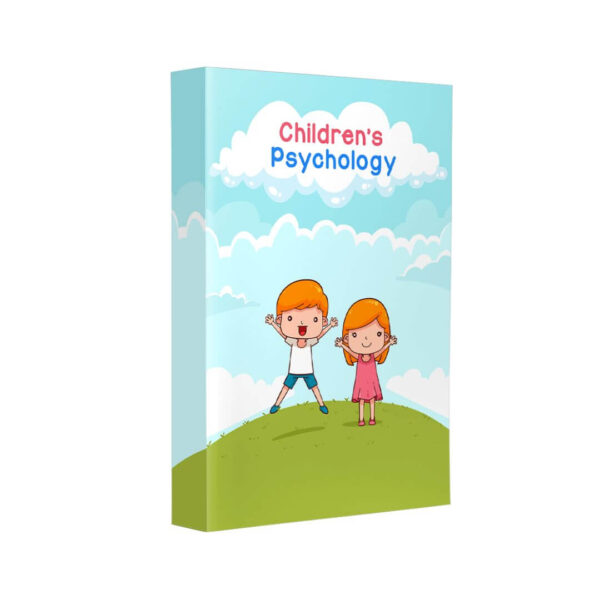Description
Children Psychology
Understanding children’s psychology is essential for parents, educators, and caregivers to provide optimal support and guidance as children grow and develop. Children psychology encompasses the study of cognitive, emotional, social, and behavioral aspects of child development from infancy through adolescence. In the realm of cognitive development, children’s psychology explores how children perceive, think, and learn about the world around them. This includes understanding milestones such as language acquisition, problem-solving abilities, and the development of memory and attention span. By understanding cognitive processes, caregivers can create enriching environments and activities that stimulate children’s intellectual growth.
Emotional development is another critical aspect of children’s psychology. It involves understanding how children experience and express emotions, regulate their feelings, and develop empathy and social skills. By fostering emotional intelligence, caregivers can help children navigate relationships, cope with challenges, and develop resilience in the face of adversity.
Social development is also a key focus of children’s psychology. This entails examining how children form attachments, interact with peers and adults, and develop a sense of identity and belonging within their social environment. Understanding social development helps caregivers create supportive social networks, promote positive peer relationships, and instill values such as cooperation and empathy.
Furthermore, children’s psychology encompasses behavioral development, including the study of behaviors, habits, and discipline strategies. By understanding the factors that influence behavior, caregivers can implement effective discipline techniques, set appropriate boundaries, and support children in developing self-control and responsibility. Overall, children’s psychology provides invaluable insights into the complex and dynamic process of child development. By understanding cognitive, emotional, social, and behavioral aspects, caregivers can create nurturing environments that support children’s growth and well-being. With this knowledge, parents, educators, and caregivers can empower children to reach their full potential and thrive in all aspects of life.
In this book, you will learn:
- Introduction
- Kids Mental Health – The Basics
- Nurturing Positivity And Confidence
- Identifying the Behavioral Changes In Your Child
- Birth Defects – Causes and Consequences
- Behavior Disorders – In and Out
- Enhancing Mental Health With Fun Games
- Take Care of Yourself as Well
- Conclusion











 AI YouTube Masterclass
AI YouTube Masterclass